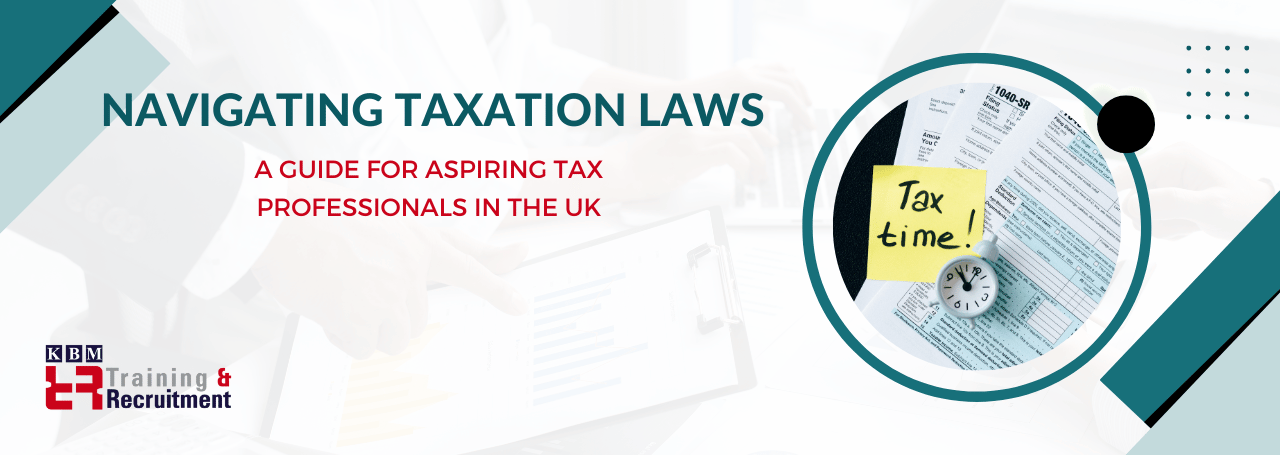Taxation laws in the United Kingdom are intricate and constantly evolving, presenting a complex landscape for individuals aspiring to pursue a career in tax consultancy. Comprehending these laws and regulations is essential for those aiming to offer clients helpful tax guidance and services.
This guide explains the basics of UK taxation laws, offering valuable insights and resources for aspiring tax professionals.
Understanding the Basics
Before diving into the details of UK taxation laws, it's crucial to understand the foundational concepts that form the basis of the tax system. In the UK, taxes are broadly categorised into two main types: direct taxes and indirect taxes. Direct taxes are those imposed directly on individuals and businesses, such as income and corporation taxes.
On the other hand, indirect taxes are imposed on purchasing goods and services, such as value-added Tax (VAT) and duties on certain products.
Income Tax
Before we start exploring the complexities of UK taxation laws, it's crucial to understand the basic principles that shape the tax system. In the UK, taxes are broadly categorised into two main types: direct taxes and indirect taxes. Income and corporation tax comes under direct taxes imposed on individuals and businesses.
Corporate Taxation
Corporate taxation deals with the taxation of profits earned by businesses operating in the UK. This includes understanding the tax rates applicable to various types of companies, tax reliefs and allowances available, and compliance requirements for corporation tax returns.
Aspiring tax professionals must be well-versed in corporate tax laws to assist businesses in minimising their tax liabilities while remaining compliant with legal obligations.
Value Added Tax (VAT)
Value-Added Tax, abbreviated as VAT, is recognised as a consumption tax within the UK. It is imposed on goods and services at various stages of their production and distribution cycles. For businesses operating in the UK, it is imperative to have a thorough understanding of VAT regulations, registration thresholds, and compliance requirements to ensure adherence to tax laws.
As a tax professional, being able to advise clients on VAT-related matters can help companies manage their cash flow and avoid penalties for non-compliance.
Tax Planning Strategies
Efficient tax planning is crucial for individuals and businesses as it helps minimise tax obligations while maximising financial effectiveness. Aspiring tax professionals should be familiar with various tax planning strategies, such as income deferral, tax-efficient investments, and utilising tax reliefs and allowances.
Tailored tax planning advice can help clients optimise their financial affairs and achieve their long-term objectives.
Staying Updated
Taxation laws are prone to regular changes due to updates in legislation, court decisions, and shifts in government policies. As a result, continuous learning and staying informed are essential for tax professionals to remain relevant and effective in their roles. Resources such as updates from HM Revenue & Customs (HMRC), professional tax publications, and attending relevant training courses can help aspiring tax professionals stay updated with the latest developments in tax legislation.
Conclusion
Navigating taxation laws in the UK requires a solid understanding of various tax concepts, compliance requirements, and tax planning strategies. Aspiring tax professionals can leverage resources and continuous learning opportunities to gain the necessary expertise in this ever-evolving field. Tax experts are pivotal in guiding individuals and businesses through the intricate maze of the UK tax system, ensuring smooth navigation and compliance with regulation. They achieve this by staying informed and providing valuable tax advice and services.






















